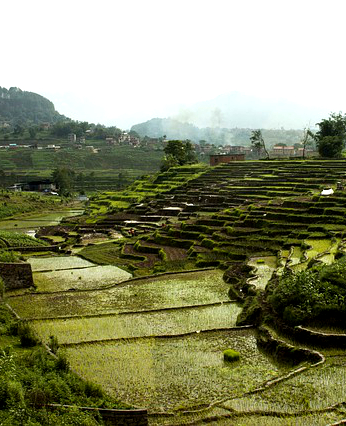Student's burning farm ambition rewarded
 One young researcher in Queensland is looking for solutions to his home country’s rapidly rising needs, and has been rewarded for his efforts so far.
One young researcher in Queensland is looking for solutions to his home country’s rapidly rising needs, and has been rewarded for his efforts so far.
A University of Queensland student wants to help improve the lives of the starving millions worldwide, by investigating ways to re-use waste for agricultural purposes.
PhD candidate Kalkika Upadhyay’s food security goal for developing countries is one step closer through his latest research, which has looked at the use of biochar (charcoal) to produce more sustainable agriculture soils.
Mr Upadhyay says he is concentrating his work on the needs of Nepal, his home nation. The Nepalese government faces the challenge of managing solid waste produced from agriculture, forestry and municipalities.
“Agriculture is the major industry in Nepal, where millions of people are suffering from hunger, malnutrition and poverty,” he said.
“My research suggests that the biochar produced from solid wastes can be used as soil amendment, for example, as a liming agent in hills where acidic soils are prevalent.
“The use of biochar is also a sustainable way to maintain carbon in the agricultural lands degraded by factors including landslides and flood.”
Mr Upadhyay’s research was recognised at the 29th International Conference on Solid Waste Technology and Management in Philadelphia, USA, where he won the Student Paper Award for a report based on his PhD research.
“Receiving this exciting award from my peers only strengthens my desire to produce some viable solutions in the area of sustainable agricultural development,” he said.
“My hope is that my research will contribute to the understanding of soil fertility management systems for food production so that no one in Nepal, or the world, will go hungry due to the lack of healthy food.”







 Print
Print